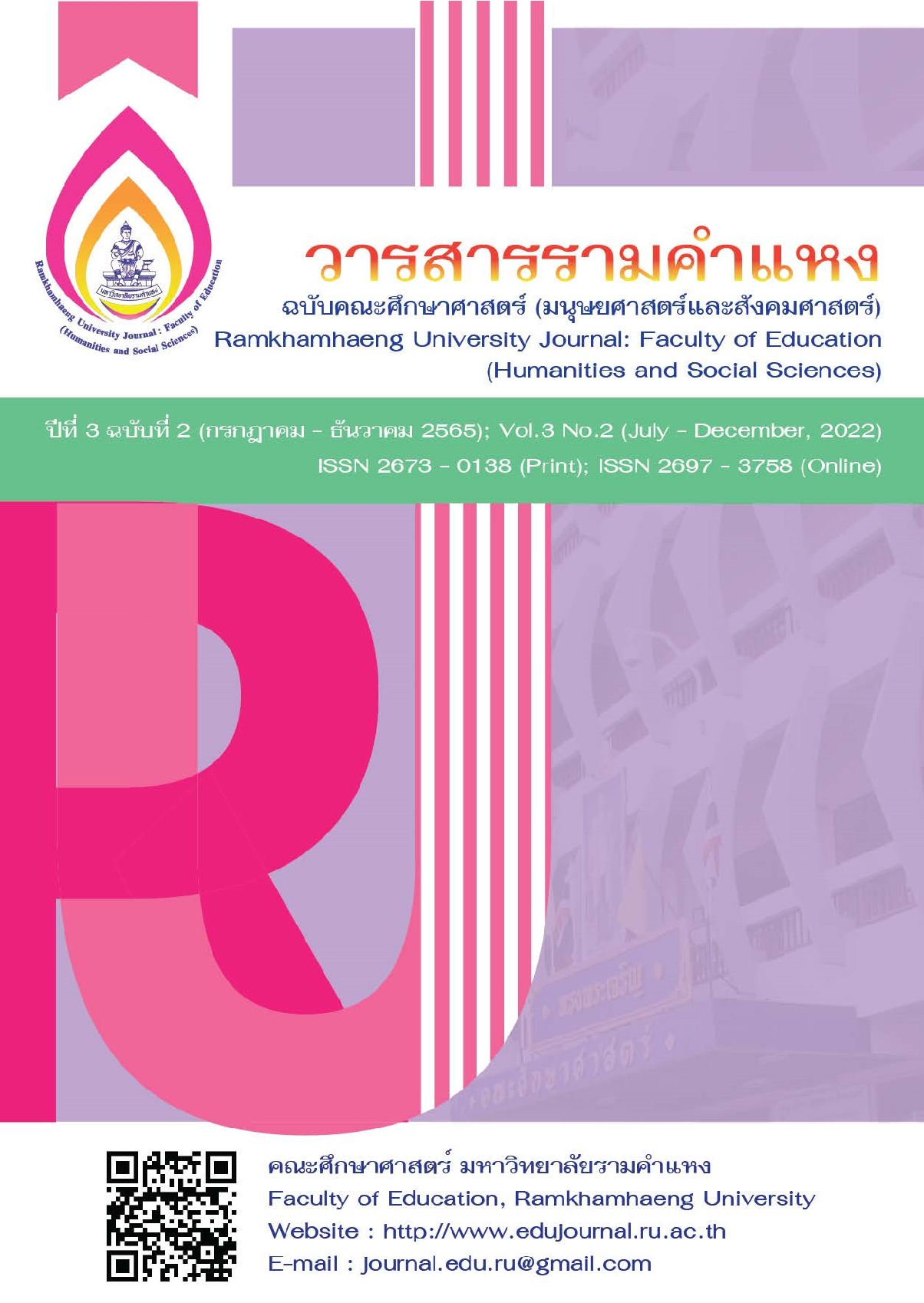การจัดการเรียนรู้ตามแนวสตีมศึกษา (steam education) เรื่อง วงจรไฟฟ้าอย่างง่าย สำหรับนักเรียนระดับประถมศึกษา
Main Article Content
บทคัดย่อ
การจัดการเรียนรู้ตามแนวสตีมศึกษา (steam education) เรื่อง วงจรไฟฟ้าอย่างง่าย สำหรับนักเรียน ระดับประถมศึกษา เป็นการจัดกิจกรรมแบบบูรณาการข้ามกลุ่มสาระวิชา (integration) ระหว่างศาสตร์สาขาต่าง ๆ ซึ่งถือเป็นการปรับเปลี่ยนกระบวนการเรียนรู้ที่นำจุดเด่นของธรรมชาติและวิธีการสอนของแต่ละสาขาวิชามา ผสมผลานกัน เพื่อให้ผู้เรียนสามารถนำความรู้ทุกแขนงไปประยุกต์ใช้ในการแก้ปัญหาในชีวิตจริง โดยเน้นให้ผู้เรียนได้ลงมือกระทำและพัฒนาทักษะต่าง ๆ (ส่งเสริมให้ผู้เรียนมีความสนใจใคร่รู้ แสวงหาคำตอบด้วยตนเอง และบูรณาการทักษะที่จำเป็นมาใช้ในการดำรงชีวิต มีขั้นตอนการจัดกิจกรรมตามแนวทางสะเต็มศึกษาของ สสวท. (The Institute for the Promotion of Teaching Science and Technology [IPSTJ, 20 15) ประกอบด้วย 6 ขั้นตอน ได้แก่ การระบุปัญหา รวบรวมข้อมูลและแนวคิดที่เกี่ยวข้องกับปัญหา ออกแบบวิธีการแก้ปัญหา วางแผนและดำเนินการแก้ปัญหา ทดสอบ ประเมินผล และปรับปรุงแก้ไขวิธีการแก้ไขปัญหาหรือแก้ไขขึ้นงาน นำเสนอวิธีการแก้ปัญหา ผลการแก้ปัญหาหรือชิ้นงาน การจัดกิจกรรมการเรียนรู้ตามแนวสตีมศึกษา (steam education) นี้ เป็นการส่งเสริมให้ผู้เรียนเรียนรู้และสร้างองค์ดวามรู้ด้วยตนเองผ่านกระบวนการแก้ปัญหาที่ นำไปสู่การพิสูจน์ข้อเท็จจริงและกระบวนการหาดำตอบ ที่นำมาสู่การอธิบายเหตุผลของข้อมูลและหลักฐานที่ปรากฏ และสามารถพัฒนาส่งเสริมให้ผู้เรียนมีทักษะกระบวนการทางวิทยาศาสตร์ รวมถึงทักษะที่สำคัญในศตวรรษที่ 21 (3R8C) เช่น การแก้ปัญหาการทำงานร่วมกัน การพูดสื่อสาร การเขียนสื่อสารและความคิดสร้างสรรค์
Downloads
Article Details

อนุญาตภายใต้เงื่อนไข Creative Commons Attribution-NonCommercial-NoDerivatives 4.0 International License.
ผู้ส่งบทความ (และคณะผู้วิจัยทุกคน) ตระหนักและปฎิบัติตามจริยธรรมการวิจัยอย่างเคร่งครัด ทั้งนี้บทความ เนื้อหา ข้อมูล ข้อความ ภาพ ตาราง แผนภาพ แผนผัง หรือข้อคิดเห็นใดๆ ที่ปรากฎในบทความ เป็นความคิดเห็นและความรับผิดชอบของผู้ส่งบทความ กองบรรณาธิการไม่จำเป็นต้องเห็นตามเสมอไป และไม่มีส่วนรับผิดชอบใดๆ โดยถือเป็นความรับผิดของของเจ้าของบทความเพียงผู้เดียว
เอกสารอ้างอิง
Herro, D., Quigley, C., Andrews, J., & Delacruz, G. (2017). Co-Measure: Developing an assessment for student collaboration in STEAM activities. International Journal of STEM Education, 4(26), 1-12.
Israsena, C. (2010). Development the group of prepares the readiness in mathematics side for students’ first pre-kindergarten level about “Counting” Chiang Mai rajabhat university’s demonstration school. Master Thesis, Chiang Mai Rajabhat University]. http://cmruir.cmru.ac.th/handle/123456789/690 (in Thai).
Issanapong, S., Chaiprasert.P., & Singlop, S. (2021) . STEAM education approach on learning achievement, scientific creativity and attitude toward chemistry for grade 10 students. MBU Education Journal: Faculty of Education Mahama, 3(2), 177-188. (in Thai).
Kongsilp, N. (2018). The development an elementary curriculum for global learning by using STEAM. Journal of Industrial Education, 12(2), 46-56. (in Thai).
Noiwong, W., & Wongthong, P. (2020). Learning activity based on STEAM education that emphasizes engineering design process in topic of hydroponics for enhancing 21st century skills of upper elementary school students. Journal of Science and Science Education, 3(2), 177-188. (in Thai).
Office of the Basic Education Commission. (2017). Indicators and learning content of the core curriculum of basic education. The Agricultural Cooperative Federation of Thailand. (In Thai).
Office of the Education Council. (2017). National Education Plan (2017-2036).
Prikwarn graphic. (In Thai). The Institute for the Promotion of Teaching Science and Technology (IPST). (2015) Introduction to STEM Education. OTEP Ladprao. (In Thai).
Orapiriyakul, S. (2019) . STEAM EDUCATION: Innovative education integrated into learning management. Journal of Research and Curriculum Development, 9(1), 1-15. (in Thai).
Perignat , E., & Katz-Buonincontro, J. (2019). STEAM in practice and research: An integrative literature review. Thinking Skills and Creativity, 31, 31-43.
Rattanahiran, T. (2019). Learning management by stem education to develop science process skill and task creative ability for seventh grand student. Master Thesis, Silpakorn University. http://ithesis-ir.su.ac.th/dspace/bitstream/123456789/2734/1/59253404.pdf (in Thai).
Wongthong, P. (2019). Effect of integrated learning activities based on STEAM education on science learning achievement, critical thinking skills and students’ satisfaction of grade 4 students. J. Res. Unit Sci. Technol. Environ. Learning, 10(1), 64-110. (in Thai).
Yakman, G. (2018) . STEAM education: An overview of creating a model of integrative education. Master Thesis, Virginia Polytechnic and State University. https://www.researchgate.net/publication/327351326_STEAM_Education_an_overview_of_creating_a_model_of_integrative_education.


